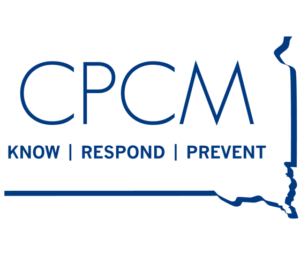eSANE: Protecting Survivors’ Privacy and Other Rights in Multi-Disciplinary Collaboration
Objectives: This interactive training, which uses hypothetical scenarios to help participants begin putting these ideas into practice, is designed to equip victim services agencies and other members of multi-disciplinary teams with foundational information to: understand legal and ethical confidentiality and privacy obligations governing service professionals, develop information-sharing norms, identify other select victims’ rights moments that arise in collaborations.
Trainers: Amy Liu and Rebecca Khalil, National Crime Victim Law Institute
For any victim service agency or community organization working with survivors, maintaining the privacy of survivors’ communications and personal information is key to empowerment and supporting their safety. Because privacy is often critical to survivors’ safety and healing, federal and state legislatures and professional licensing bodies have created frameworks of laws and regulations that help protect the privacy of information victims share with these professionals. Applying these laws and regulations can be challenging when implementing policies within a single organization, and when agencies come together to collaborate, it can be even more complex.
 Amy Liu is the Senior Appellate Attorney at NCVLI. In this capacity she works on NCVLI’s national litigation efforts to advance victims’ rights, crafting strategic litigation plans, writing amicus curiae briefs and counseling other attorneys on effective legal advocacy. In addition, as part of the NCVLI Legal team, Ms. Liu provides legal technical assistance to attorneys, victim advocates and allied professionals nationwide on crime victims’ rights-related topics. Ms. Liu also creates and presents online and in-person trainings on various victims’ rights law topics. Ms. Liu served as the NCVLI Liaison with the American Bar Association’s Commission on Domestic & Sexual Violence from 2019-2020. Before joining NCVLI, Ms. Liu worked in student services at the University of Iowa College of Law and practiced law as a litigation associate in the Los Angeles offices of Skadden, Arps, Slate, Meagher & Flom LLP and Morgan, Lewis & Bockius LLP. Ms. Liu clerked for the Honorable Audrey B. Collins and the Honorable Robert J. Kelleher of the United States District Court, Central District of California. She received her BA in Economics/Business and JD from the University of California, Los Angeles. Ms. Liu joined NCVLI in November 2010.
Amy Liu is the Senior Appellate Attorney at NCVLI. In this capacity she works on NCVLI’s national litigation efforts to advance victims’ rights, crafting strategic litigation plans, writing amicus curiae briefs and counseling other attorneys on effective legal advocacy. In addition, as part of the NCVLI Legal team, Ms. Liu provides legal technical assistance to attorneys, victim advocates and allied professionals nationwide on crime victims’ rights-related topics. Ms. Liu also creates and presents online and in-person trainings on various victims’ rights law topics. Ms. Liu served as the NCVLI Liaison with the American Bar Association’s Commission on Domestic & Sexual Violence from 2019-2020. Before joining NCVLI, Ms. Liu worked in student services at the University of Iowa College of Law and practiced law as a litigation associate in the Los Angeles offices of Skadden, Arps, Slate, Meagher & Flom LLP and Morgan, Lewis & Bockius LLP. Ms. Liu clerked for the Honorable Audrey B. Collins and the Honorable Robert J. Kelleher of the United States District Court, Central District of California. She received her BA in Economics/Business and JD from the University of California, Los Angeles. Ms. Liu joined NCVLI in November 2010.
Pronouns: she/her/hers
 Rebecca Khalil is NCVLI’s Director of Victim Assistance and Training. In this role, she directs NCVLI’s advocate academies and training opportunities. In addition, as part of the legal team, she researches victims’ rights laws and policies across the United States, drafts amicus briefs, provides technical legal assistance to attorneys and advocates nationwide, and creates and presents online and in-person trainings on a variety of victims’ rights topics. From 2010-2012 she directed NCVLI’s Safeguarding Child-Victims’ Rights Initiative. Before joining NCVLI, Rebecca was a litigation associate with Baker & Hostetler LLP in New York City, where she worked on a number of complex commercial and business litigations, including trade secret, securities, and contract cases, as well as white collar criminal defense, governmental and quasi-governmental matters, and corporate investigations. During law school, she was an extern with the Criminal Division of the U.S. Attorney’s Office in San Jose, California. Rebecca holds a BA in History from Seattle University and earned her JD from Stanford Law School, where she was elected to the Order of the Coif. Rebecca joined NCVLI in December 2010.
Rebecca Khalil is NCVLI’s Director of Victim Assistance and Training. In this role, she directs NCVLI’s advocate academies and training opportunities. In addition, as part of the legal team, she researches victims’ rights laws and policies across the United States, drafts amicus briefs, provides technical legal assistance to attorneys and advocates nationwide, and creates and presents online and in-person trainings on a variety of victims’ rights topics. From 2010-2012 she directed NCVLI’s Safeguarding Child-Victims’ Rights Initiative. Before joining NCVLI, Rebecca was a litigation associate with Baker & Hostetler LLP in New York City, where she worked on a number of complex commercial and business litigations, including trade secret, securities, and contract cases, as well as white collar criminal defense, governmental and quasi-governmental matters, and corporate investigations. During law school, she was an extern with the Criminal Division of the U.S. Attorney’s Office in San Jose, California. Rebecca holds a BA in History from Seattle University and earned her JD from Stanford Law School, where she was elected to the Order of the Coif. Rebecca joined NCVLI in December 2010.
Pronouns: she/her/hers
This training is hosted by CPCM under Grant No. 2019-MU-GX-K014, awarded by the Office for Victims of Crime, Office of Justice Programs, U.S. Department of Justice. The opinions, findings, and conclusions or recommendations in this document are those of the contributors and do not necessarily represent the official position or policies of the U.S. Department of Justice.

